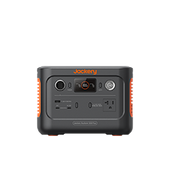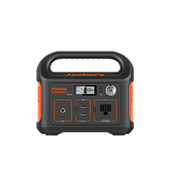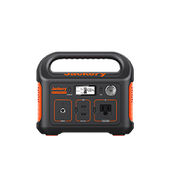How many watts does a window AC use? A window AC uses about 500 to 2000 watts of energy on average. Air conditioners are an essential electronic appliance in many households, especially in the summer, as they maintain a comfortable temperature on hot days. It is important to find how many watts a window AC uses so that you can know exactly how much it will add to your electricity bill and whether this will be affordable.
In this article, we will discuss finding your window AC unit wattage and estimating energy consumption and its cost. So let us move on.
Key Takeaways About Window AC Wattage
- How many watts a window AC usedepends on various factors, including the size of the AC, the area to cover, and how hot the weather is. A large window AC can use around 1,440 watts, a medium-sized window AC uses 900 watts, and a small AC unit uses about 500 watts.
- Generally, an air conditioning unit runs for eight to nine hours daily during the hot summer days. Eventually, different sizes of window ACs can use 500-15000 watts of power per hour.
- We can see that windows AC can use moderate to high amounts of energy, and thus it is a bog overload on your electricity bill. Converting to solar generators or solar panels can save you a lot of money in the long run. Jackery has a line of safe, reliable, and efficient solar generators that can run most of your household appliances for a good amount of time.
How Many Watts Does A Window Ac Use?
Definition Of BTU, Watts, Running Watts, Watt-Hours
- A British thermal unit (BTU) is a unit to measure the heat content of energy sources. In simpler terms, btu is the heat required to increase the temperature of one point of water by one degree Fahrenheit at its greatest density.
- A Watt is a measuring unit for the rate of electricity consumption. It can be calculated by;
Watts = Volts * amps
A kilowatt is 1,000 watts.
- The running watts of an appliance is the continuous watts that keep the electronic device running. It is also known as rated watts.
- Watt-hour (Wh)measures the energy consumed by a device over a certain time.
BTU To Watt
BTU to watt conversion is done through a formula. BTU to Watts can be calculated by multiplying the BTU/hr by 0.29307107.
1 BTU is equal to 0.293 watts
Watt= BTU * 0.29307107
Example:
How many watts are in 24,000 BTU?
We know that 1 BTU is equal to 0.293W.
Watt = BTU * 0.29307107
Watt = 24,000 * 0.29307107
Watts = 7,032 watts
That means that 24,000 BTU is equal to 7,032 watts.
Let's take another example where we will convert 8000 BTU to watts:
Watt = BTU * 0.29307107 = 8000 BTU * 0.29307107 = 2,344.56856 watts or 2344 watts
How Many Watts Does A Window AC Use
How much energy a window AC uses depends on its thermostat, size, and duration of its working. For example, if you want to determine how much electricity a window AC uses if it operates at an average 5,000 BTU air conditioner at its full capacity, you can convert BTU to watts using the formula mentioned above. The following table shows the estimated window AC power consumption.
|
Window AC BTU |
Window AC Estimated Watts |
Length of Time Powered (hours) |
Estimated power needed daily (Watt-hours) |
|
500 |
147 |
8 |
1,176 |
|
1000 |
293 |
8 |
2,344 |
|
2000 |
586 |
8 |
4,688 |
|
3000 |
879 |
8 |
7,032 |
|
4000 |
1172 |
8 |
9,376 |
|
5,000 |
1465 |
8 |
1,1720 |
|
6,000 |
1758 |
8 |
14,064 |
|
8,000 |
2345 |
8 |
18,760 |
|
10,000 |
2931 |
8 |
23,448 |
|
12,000 |
3517 |
8 |
96,000 |
|
14,000 |
4103 |
8 |
1,12,000 |
|
15,000 |
4396 |
8 |
1,20,000 |
|
18,000 |
5275 |
8 |
1,44,000 |
How Many Watts Does A Small Window AC Use
A small window AC uses 500 - 800 watts on average. If you know the BTU rating of your AC, then you can easily calculate the wattage. We have already discussed the BTU-to-watt conversion in the above section.
How To Calculate How Much Energy Your Window AC Uses
You can find the BTU rating of your air conditioner in your appliance's manual or on the sticker placed on the AC. Usually, you will see the BTU measurement of your AC, and then you can convert it to watts and watt hours, the unit you use to calculate your electricity bill. So let us see the conversion.
How many BTUs are there in 1 watt-hour?
1 BTU = 0.29307107018321-watt hours
1 BTU = 0.29307107018321 watt hours (1*0.29307107018321)
2 BTU = 0.5861421403 watt hours (2*0.29307107018321)
5 BTU = 1.47 watt hours (5*0.29307107018321)
What Size Generator Do I Need For Window AC
You can run a small to medium window AC unit with a 1000-watt generator. A bigger generator of around 2000 watt power can run a large window AC unit. Solar power generators are a new alternative to regular gas generators because they are environment-friendly, noise-free, and low-cost. Though there is a high upfront cost, after that, there is no fuel cost as it draws energy from the sun, and also, the maintenance cost is very low.
How many watts does a window AC use from a generator? A window AC is in the range of 5000 BTU to 14000 BTU. The running watts required for a 5000 BTU air conditioner are around 450. An 8000 BTU air conditioner may need about 715 watts, and 1250 watts are required for a 14000 BTU air conditioner. You can estimate your window AC wattage in the above section and decide the best solar generator option.
Jackery Solar Generator 2000 Plus Kit (4kWh) is the best option for an 8000 BTU window air conditioner.
Jackery Solar Generator 1500 can run a large window AC easily.
Jackery Solar Generator 2000 Plus is a more practical option because it can simultaneously support multiple appliances on a solar generator.
Best Solar Generators for Window AC
The Jackery solar generators are the best for window AC because they have a wide range of options with multiple energy capacities. These generators have very fast charging and support long hours of working. The best solar generators for AC are discussed below.
Jackery Solar Generator 3000 Pro
If you're looking for a reliable charging solution for small or large window AC, you may consider the Jackery Solar Generator 3000 Pro. The solar generator can power an air conditioner and can also be connected to the home's electrical circuit to ensure the essential appliances keep running in the blink of an eye during any unexpected power outage. It also has a pull rod, double wheels, and a foldable handle to move the solar generator anywhere and charge 99% of household appliances.
Appliances Running Time
- Small AC (500W) = 5.1H
- Medium Window AC (900W) = 2.8H
- Large Window AC (1440W) = 1.7H

Customer Review
“Works great so far with home charge and solar charge. I will be hooking it up with my pop-up camper next week. Great size, quiet and good app so far.” — James Matthews.
Jackery Solar Generator 2000 Plus
Those who are often planning outdoor trips and are wondering whether Jackery can run a portable air conditioner, the Jackery Solar Generator 2000 Plus would make more sense. The double wheels and foldable handle makes the solar generator portable and ideal for long RV or camping trips. It has a large capacity to run window ACs of most sizes during power outages, blackouts, and brownouts. It's also worth noting that you can expand the battery capacity from 2kWh to 24kWh during high power needs.
Appliances Running Time
- Small AC (500W) = 3.4H
- Medium Window AC (900W) = 1.9H
- Large Window AC (1440W) = 1.2H

Customer Review
“The best investment for our business is to do craft shows. We use the Jackery Explorer 2000 Plus with 2 SolarSaga 200W panels to power our XTool F1 portable laser air purifier laptop and lights on our canopy, and if the power goes out, I can power my CPAP machine with no need to pay the vendor for electricity.” — Kevin J. Craig.
Jackery Solar Generator 2000 Plus Kit (4kWh)
If you want a larger charging solution that's ideal for window ACs and other household appliances, you may consider the Jackery Solar Generator 2000 Plus Kit (4kWh). The solar generator supports charging 99% of household appliances to ensure you're never left without power during blackouts, brownouts, and power outages. You can also pack the portable power station and foldable solar panels in your RV or camper to charge various outdoor appliances, including portable ACs.
Appliances Running Time
- Small AC (500W) = 6.9H
- Medium Window AC (900W) = 3.8H
- Large Window AC (1440W) = 2.4H

Customer Review
“This is absolutely a great addition to the 2000 Plus. I mainly have this for power outages, but I will use it on the occasional camping trip. I will probably buy an additional pack to make my supply 6k.” — Mark Watkins.
FAQ About Window Ac Wattage
1. Will a 2000-watt generator run an air conditioner?
A 2000 running watts generator provides enough power to run a medium to large window AC without any problem. However, it is important to know that the running watts are lower than the starting watts. We need high power for a few seconds when the AC starts, so we need to consider this wattage too.
2. Can a 1000-watt generator run a window air conditioner?
A 1000 watts generator can easily support 500-600 wattage window ACs. We are stating a smaller wattage because an AC needs 50% to 100% additional power to support inertia at start-up.
3. Will a 2000-watt generator run a 5000 BTU AC?
A 5000 BTU air conditioner needs 1456 watts which a 2000-watt generator can easily support.
4. How many watts does a window AC use?
A window AC unit uses between 500 to 1,500 watts of electricity. A medium size window uses 900 watts of electricity. Using this AC for 8 hours will consume about 200 kilowatt-hours of electricity each month.
5. How many watts is a small air conditioner?
Small air conditioners typically consume around 500 - 800 watts of power per hour when operating at full capacity.
Conclusion
Air conditioners are essential electronic appliances for people in hot summer areas. It is important to estimate how many watts a window AC use because it helps you to estimate the electricity bill. Also, if you want to save on electricity costs, then solar generators of adequate capacity help you save money with an environmentally friendly solution.




















































































































Will a jackery power a small window unit while its charging? Solar or plugged in to a 120. If solar how many panels are recommended to run the AC a full 8 hrs. We are full time van lifers living in Texas and looking for solutions.
Leave a comment